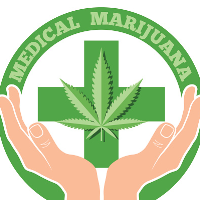Medical Marijuana Use Saves Lives and Money
 (graphic: Getty Images)
(graphic: Getty Images)
By Randy Tucker, New York Times
DAYTON, Ohio -- The debate preceding the legalization of medical marijuana in Ohio focused primarily on its risks, but a number of recent studies indicate the benefits of marijuana treatment could mean the difference between life and death in some instances, and even help control Medicare spending.
In the 17 states and District of Columbia that had medical marijuana laws in 2013, Medicare spending on prescriptions fell by about $165 million that year alone as more people turned to marijuana and cannabis-based drugs to treat symptoms normally treated with pharmaceuticals, according to a recent study published in the journal Health Affairs.
Researchers from the University of Georgia, who looked at prescriptions filled by Medicare Prescription Drug Plan enrollees, concluded U.S. taxpayers could save more than $500 million a year in Medicare spending if medical marijuana was legal in every state.
Today, 25 states, including Ohio, and the District of Columbia have legalized medical marijuana, and 17 states have laws allowing physicians to prescribe oils derived from marijuana plants. Ohio's medical marijuana law takes effect Sept. 8.
"Generally, we found that when a medical marijuana law went into effect, prescribing for FDA-approved prescription drugs under Medicare Part D fell substantially," the researchers reported.
Earlier studies suggest the monetary benefits of medical marijuana pale in comparison to its potential to save lives.
For example, a study by the U.S. Department of Veterans Affairs found that from 1999 and 2010, states with medical marijuana laws had about a 25 percent lower average annual opioid overdose death rate compared to states without such laws. And mortality rates continued to improve in each year after implementation of the laws, which translated to about 1,729 fewer deaths than expected in 2010.
Such research helped influence both houses of Congress in May to vote for an amendment to a bill giving veterans the right to discuss medical marijuana with their Veterans Affairs doctors in states where its legal as a treatment option for post-traumatic stress disorder and other conditions.
A recent survey of Iraq and Afghanistan veterans found more than two-thirds believe that VA physicians should be able to recommend marijuana therapy to eligible patients. But the fate of the veterans proposal is still undecided after the Republican-led House Appropriations Committee in June voted to remove the language from the bill.
In the meantime, VA hospitals in Ohio can't endorse the proposal, according to Ted Froats, a spokesman for the Dayton VA. And even if they could, they could not prescribe marijuana for medical use even though PTSD was among 20 qualifying conditions listed under the state's medical marijuana law.
"As marijuana use is still a federal offense, the VA does not provide it -- even in states that have legalized it," according to a statement from the Dayton VA Medical Center. "However, patients who participate in a non-VA marijuana program will not be denied access to care for most clinical programs."
While advocates say legal marijuana could be a potent weapon in the fight against opioid addiction in Ohio, where annual overdose deaths now outpace deaths from car accidents, others caution that the research supporting their claims is inconclusive.
Allison Sharer, prevention liaison at ADAMHS Board for Montgomery County, which helps addicts get treatment for drug addictions, said there is little scientific evidence to suggest marijuana treatment is as effective as prescription drugs for treating debilitating medical conditions, such as glaucoma, inflammatory bowel disease and chronic pain.
"I'm not saying that folks may not be individually finding some relief," Sharer said. "But when we look at opening marijuana treatment up to everybody, and start saying this is solution to our opiate crisis, that's going from zero to 60 without saying wait a minute, where are we in terms of controlled studies."
Sharer said using marijuana for pain relief has not been well-researched. And even if it is proven effective, there are no standardized prescribing guidelines or safety protocols.
"Marijuana is not a prescription, and it doesn't have the legitimacy of a prescription or all the protections of a prescription," she said. "Just because some legislators got together, or some voters got together, and said make it a medicine, that doesn't mean it meets the standards of a medicine."
Sharer also questioned the studies showing a correlation with the decline in overdose deaths in states with medical marijuana laws because many of those states had already taken action to reduce prescription drug abuse, such as programs encouraging consumers to throw away old medicines, shutting down so-called pill mills and adopting new guidelines for distributing and prescribing opioids similar to those recently adopted in Ohio.
"So many things were going on in response to the opiate crisis at the same time many of these studies were being conducted that it would be difficult to determine causation versus correlation," she said, noting that although ADAMHS is opposed to legalized marijuana for recreational use, it supports controlled research into the benefits of cannabis-based medicines.
To Learn More:
Most Americans Support Medical Marijuana, But U.S. Government May be Stifling Needed Research (by Noel Brinkerhoff, AllGov)
Obama Administration Ends 16-Year Rule Forcing Non-Federally-Funded Marijuana Research to be Approved by Government (by Noel Brinkerhoff, AllGov)
Senate Takes First Step to Allow Vets to Use Medical Marijuana (by Steve Straehley, AllGov)
Federal Government Finally Funds Research that Explores Positive Uses of Marijuana (by Steve Straehley, AllGov)
Banks Still Won't Touch Medical Marijuana Dispensaries (by Ken Broder, AllGov California)
- Top Stories
- Unusual News
- Where is the Money Going?
- Controversies
- U.S. and the World
- Appointments and Resignations
- Latest News
- Trump Orders ICE and Border Patrol to Kill More Protestors
- Trump Renames National Football League National Trump League
- Trump to Stop Deportations If…
- Trump Denounces World Series
- What If China Invaded the United States?






Comments